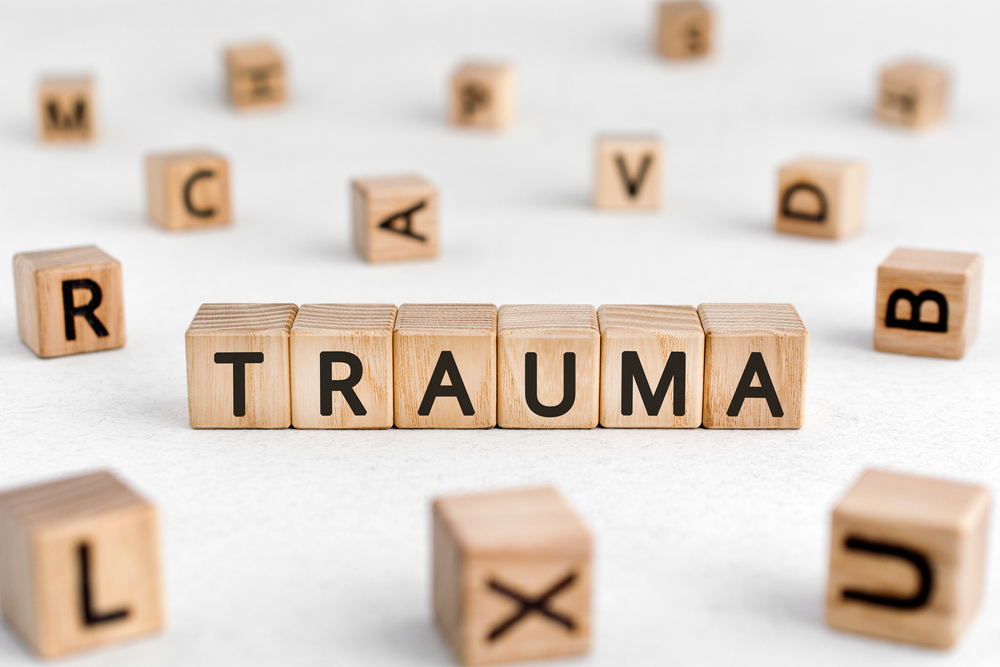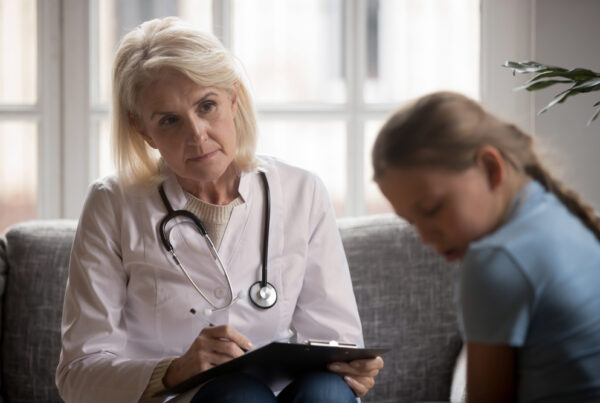The Centers for Disease Control and Prevention (CDC), describes trauma as “an event, or series of events, that causes moderate to severe stress reactions…[that are] characterized by a sense of horror, helplessness, serious injury, or the threat of serious injury or death.” Trauma can affect the innerworkings of one’s brain. For example, research indicates that traumatic stress can result in increased cortisol and norepinephrine responses to subsequent stressors, whereby the brain learns to associate certain stimuli with the traumatic event. Endorphins (the hormones in one’s body associated with feeling pleasure) also play an essential role in trauma exposure. An increase in the level of endorphins in the brain occur during trauma, and the levels remain elevated to help numb the emotional and physical pain of the trauma. Trauma exposure can cause the release of a potent neurochemical cocktail, which can play an integral role in the way an individual shows up and participates in a relationship. Good Therapy identifies some of the effects unresolved trauma can have on relationships, including but not limited to the following:
- Avoidance of and decrease in emotional and physical intimacy
- Isolation
- Feelings of helplessness and hopelessness (in both partners)
- Feelings of frustration, anger, confusion, and sadness
- Increase in anxiety
- More frequent arguments and difficulty finding resolution to problems
Untreated trauma can lead to post-traumatic stress disorder (PTSD), which is listed in the Diagnostic and Statistical Manual of Mental Disorders, Fifth Edition (DSM-5) and is defined by the Mayo Clinic as “a mental health condition that’s triggered by a terrifying event—either experiencing it or witnessing it.” According to the National Alliance on Mental Illness, approximately ten percent of women and five percent of men are likely to experience PTSD at some point in their lifetimes. No two individuals share an identical personality, and the same is true for a relationship: no two relationships are the same. Every individual is different, and each person brings a uniqueness that contributes to the dynamic of a relationship. Any untreated mental health disorder will impact the innerworkings of a relationship, especially when it comes to certain psychiatric ailments like PTSD.
For Information and Support
If you are concerned for yourself or a loved one regarding substance abuse and/ or addiction, we recommend reaching out for help as soon as possible. If left untreated, substance abuse can result in long lasting and potentially life-threatening consequences. Keep in mind: you are not alone! There is an entire network of professionals that are available to help and support you and your loved one throughout the recovery process. The earlier you seek support, the sooner your loved one can return to a happy, healthy, and fulfilling life.
Please do not hesitate to reach out with any questions regarding our specific program at Haven House Addiction Treatment and/ or general substance abuse and/ or addiction treatment related information. Our highly trained staff is readily available to discuss how we might best be able to help you and your loved one. We can be reached by phone at 424-258-6792. You are also welcomed to contact anytime us via email at admissions@hhtxc.com.



